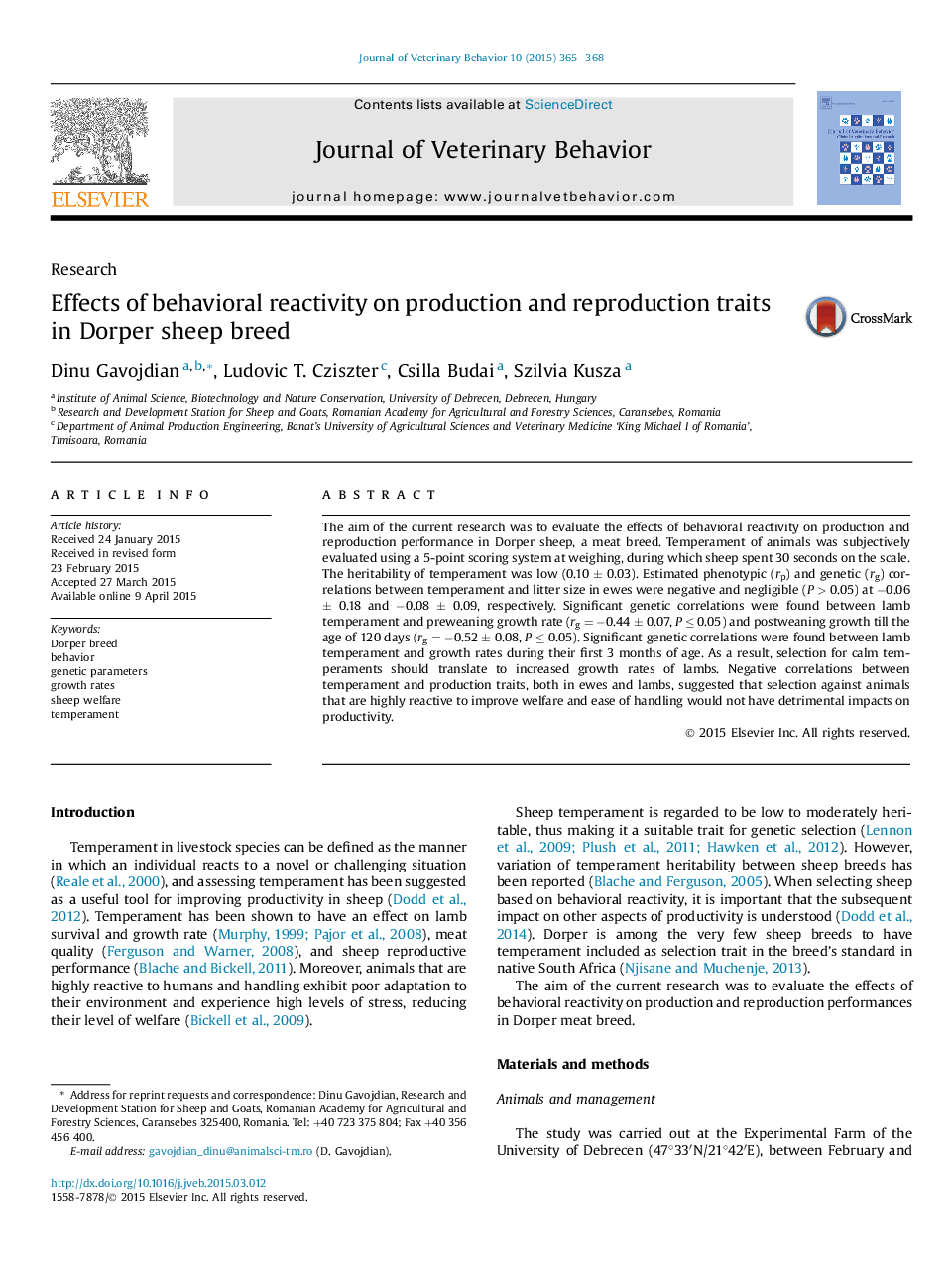| Article ID | Journal | Published Year | Pages | File Type |
|---|---|---|---|---|
| 10961777 | Journal of Veterinary Behavior: Clinical Applications and Research | 2015 | 4 Pages |
Abstract
The aim of the current research was to evaluate the effects of behavioral reactivity on production and reproduction performance in Dorper sheep, a meat breed. Temperament of animals was subjectively evaluated using a 5-point scoring system at weighing, during which sheep spent 30 seconds on the scale. The heritability of temperament was low (0.10 ± 0.03). Estimated phenotypic (rp) and genetic (rg) correlations between temperament and litter size in ewes were negative and negligible (P > 0.05) at â0.06 ± 0.18 and â0.08 ± 0.09, respectively. Significant genetic correlations were found between lamb temperament and preweaning growth rate (rg = â0.44 ± 0.07, P ⤠0.05) and postweaning growth till the age of 120 days (rg = â0.52 ± 0.08, P ⤠0.05). Significant genetic correlations were found between lamb temperament and growth rates during their first 3 months of age. As a result, selection for calm temperaments should translate to increased growth rates of lambs. Negative correlations between temperament and production traits, both in ewes and lambs, suggested that selection against animals that are highly reactive to improve welfare and ease of handling would not have detrimental impacts on productivity.
Related Topics
Life Sciences
Agricultural and Biological Sciences
Animal Science and Zoology
Authors
Dinu Gavojdian, Ludovic T. Cziszter, Csilla Budai, Szilvia Kusza,
